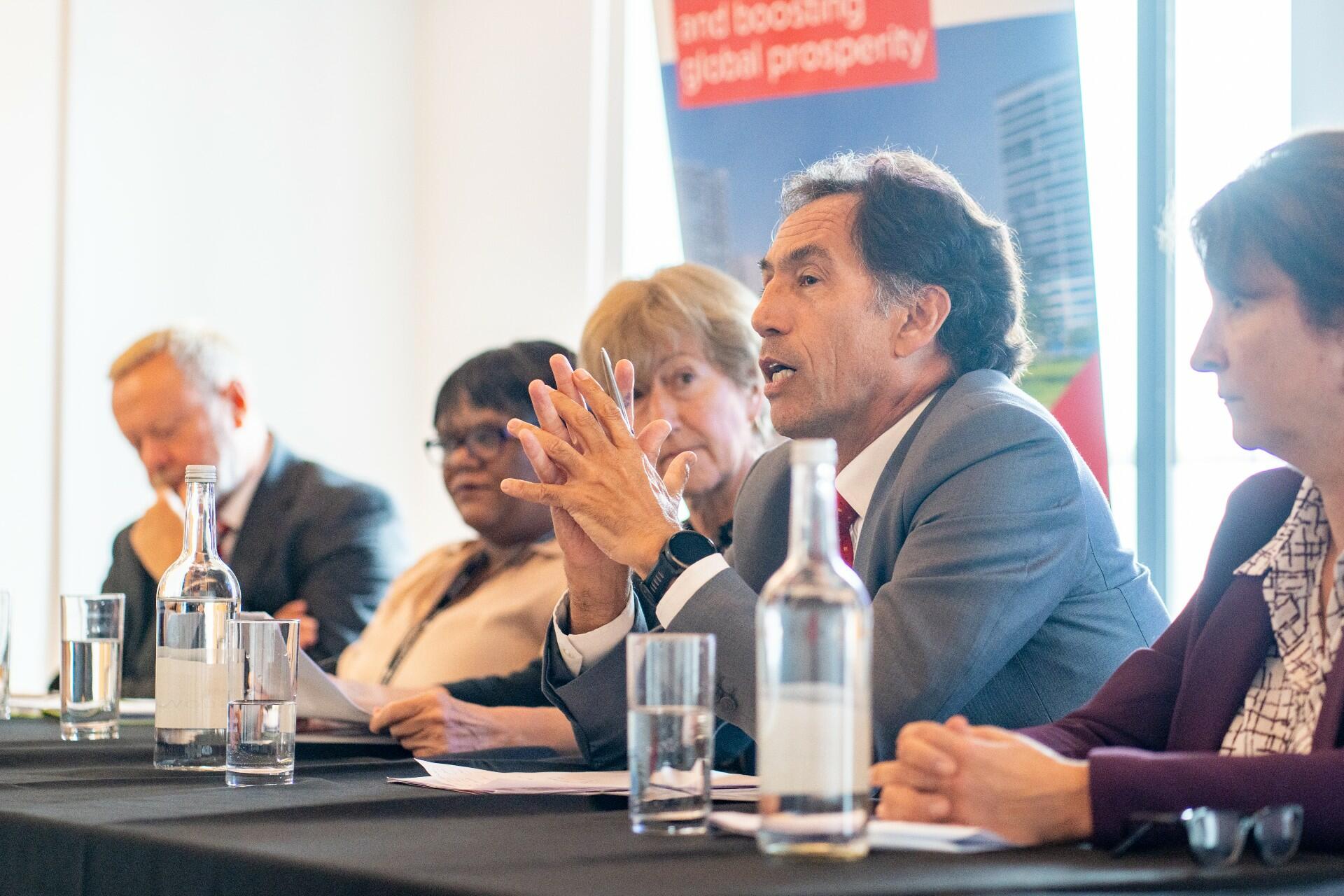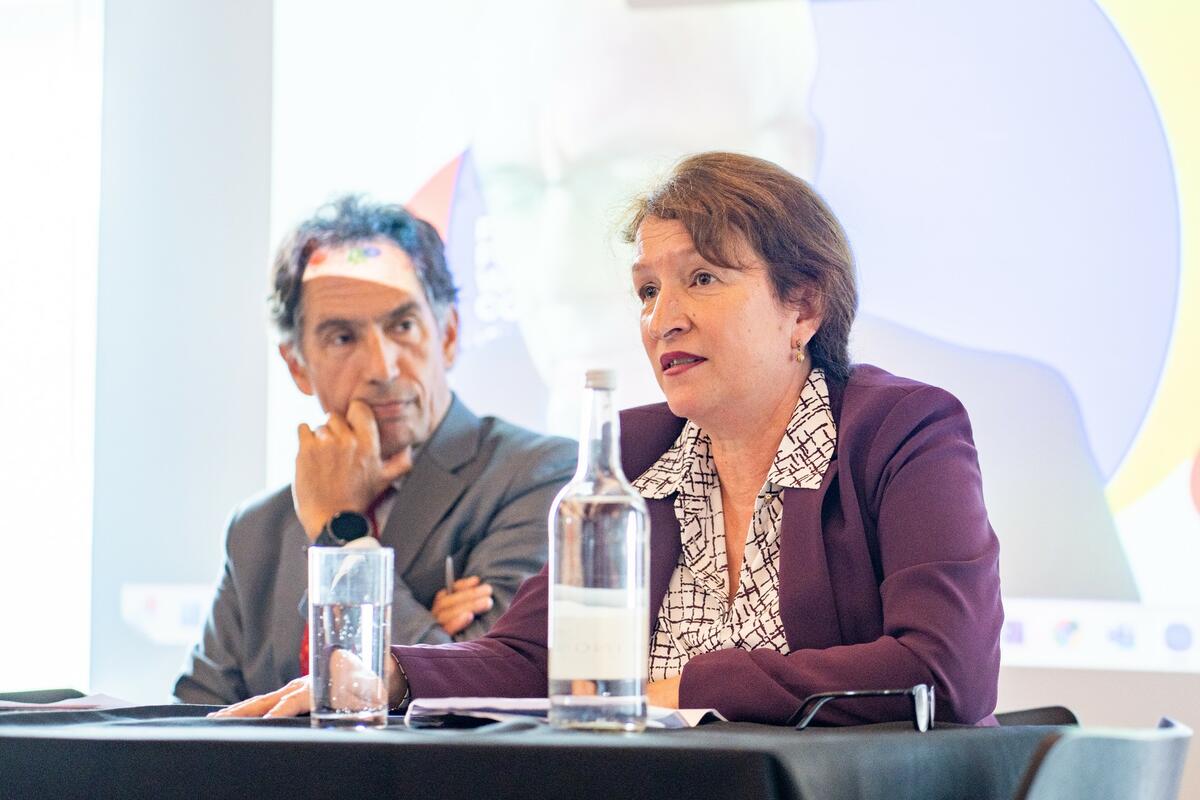
By Professor David Lalloo, Director of Liverpool School of Tropical Medicine
As the Labour Party conference came to Liverpool last week, I had the pleasure of taking part in expert panel events to discuss the future direction of global health.
It was exciting and stimulating to be part of these events, put together by Malaria No More and StopAids, alongside other academics, scientists, civil society groups and industry representatives, and Labour MPs and Labour candidates for the next election. We discussed the UK’s leading role in global health research and combatting malaria, and how the UK must learn from COVID-19 and fulfil our global responsibility to ensure all are prepared for the next pandemic.
Reflecting upon these discussions, and if the UK is to go to the polls in 2024 as expected, it feels then as though there is a short window of influence - regardless of which party forms the next government - in which to ensure British science remains at the forefront of a new global development strategy. The COVID-19 pandemic has demonstrated that diseases do not respect borders in our connected world. It is in all our interests to ensure that the greatest global health challenges are addressed, and Britain should take principled international leadership in this regard.
It is in all our interests to ensure that the greatest global health challenges are addressed, and Britain should take principled international leadership in this regard.
However, there are a number of critical aspects to consider if we are to be successful.
Funding is crucial. The UK was the second biggest funder of global health research up until 2019; this investment must continue to ensure that our excellent scientists, working closely with the commercial sector and with governments, can develop and ensure access to products that are desperately needed and will help to bolster global health security.
We also reflected on the changing environment for the UK and institutions like LSTM. As LMICs develop significant scientific capacity and aim to become rapidly self-sufficient; modes of engagement need to move away from traditional approaches rooted in the legacy of colonialism.
Instead, as health professionals in the global north, we need to be thinking about new ways about how we work collaboratively in responding to the needs of the global south and those disadvantaged communities living within low and middle-income settings. We require a better and more frequent dialogue, working in genuine partnership, to ensure that we are helping to address the real needs and demands in the global south. This is something that LSTM is already trying to do, working with researchers and ministries of health across Sub-Saharan Africa, using UK expertise to train the next generation of global health leaders, but we and many others need to think carefully how we can further embed equitable partnership at the heart of all that we do.

One of the key points emphasised was that true impact requires time, continued investment and long-term partnership and cannot be achieved in a single political cycle, a challenge when engaging with government. This is illustrated by the success of the Malawi Liverpool Wellcome (MLW) partnership, which is now 25 years old and is addressing key research issues for the region and local communities and training large numbers of African scientists. The impact of MLW during COVID, providing clinical support and surveillance on COVID and its variants that was critical to the Malawian public health response, illustrates that pandemic preparedness cannot sit in isolation. Long-term funding and research into TB, malaria and other diseases relevant to LMICs is critical to develop research and public health capacity and most importantly, the resilient health systems that are vital for responding to the next pandemic.
As a nation, we should aspire to better support other countries to respond to current health emergencies, ensuring that we are all prepared for the next global pandemic.
While many focus on where the ‘next COVID’ may emerge from, it is clear that the UK has the expertise and partnerships to make a real difference to people’s lives now, in helping to address the ongoing pandemics of HIV, TB and malaria. But we should take lessons from the COVID-19 pandemic. Access to treatment and vaccines was inequitable. As a nation, we should aspire to better support other countries to respond to current health emergencies, ensuring that we are all prepared for the next global pandemic. This may aid health security in the UK, but more importantly, it fulfils our moral obligation to help improve health outcomes for all globally.